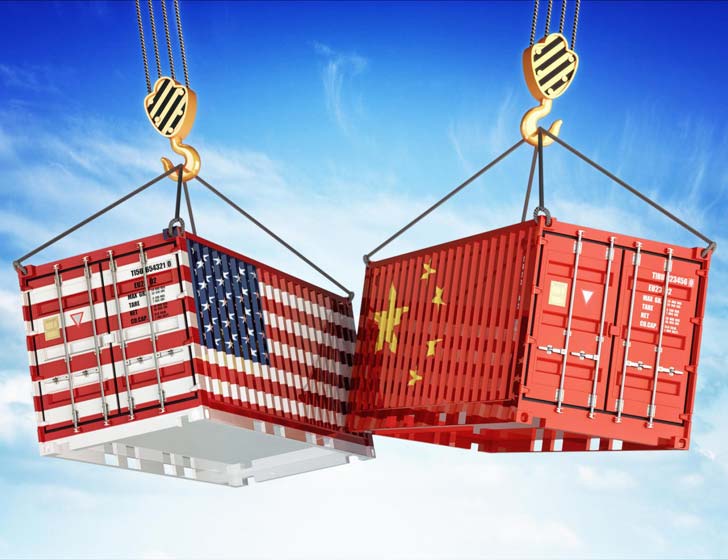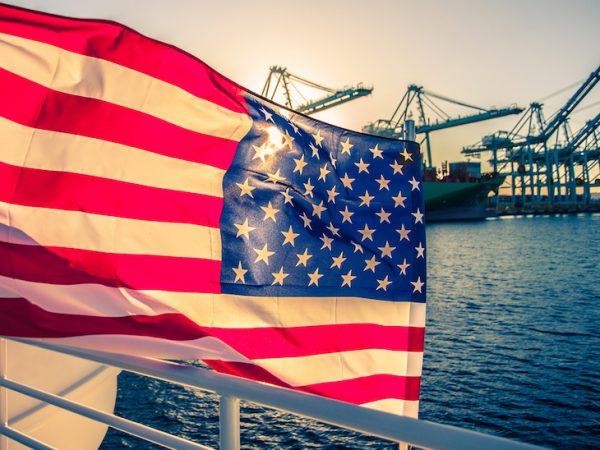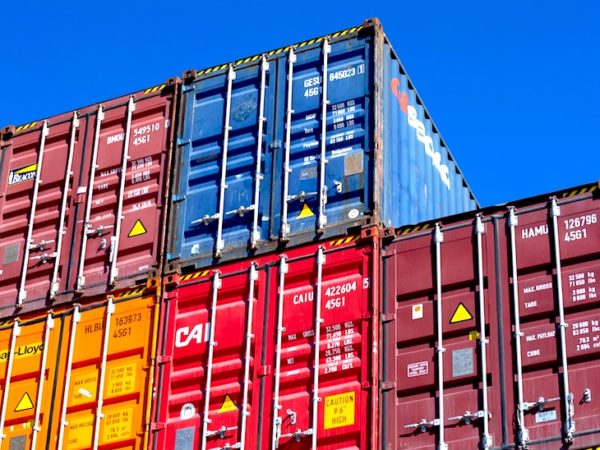
The trade war between the US and China – which seemed to be nearing an end – has suddenly escalated with the US more than doubling tariffs on Chinese goods.
As a follow up to our previous news post we examine the impact that the trade war between the two superpowers might have on the Shipping Industry.
Only recently, the US and China appeared to be close to ending months of trade tensions. But last night the US announced the increase of tariffs on $200bn of Chinese goods from 10% to 25%, with the change coming into effect at midnight. How the Chinese will retaliate is at this moment an unknown.
The 25% duty will not be applied to cargo that left China before 12:01am on Friday. Goods that left Chinese ports and airports before midnight will be subject to the original 10% duty rate and are only applied once the cargo arrive in the US, effectively meaning there is a window of about three weeks before the tariff comes into effect. Continued negotiations are planned for this weekend with officials from both sides attempting to salvage a trade deal.
How did the trade war start?
At the start of March 2018, The US Trump Administration imposed a 25% tariff on steel imports and a 10% levy on aluminium shipments from China. Mr Trump argued that global oversupply of steel and aluminium, driven by China, threatens American steel and aluminium producers, which are vital to the US.
Since then, the US has imposed three rounds of tariffs on Chinese goods, covering a wide range of consumer and industrial items. The tariff was due to rise from 10% to 25% at the start of the year, but the increase was delayed as negotiations advanced.
Why has the US imposed tariffs?
President Trump believes that if you have a trade deficit – if you import more than you export – you are losing out. The US trade deficit has increased in recent years, running at about $50bn (£38bn) a month. The new tariffs are meant to correct this imbalance and protect American jobs.
What products will be affected?
The Chinese products hit by US tariffs since the beginning of the trade war have been wide-ranging, from machinery to motorcycles. Chinese products subject to the further increase in tariffs include: telecommunications equipment, metal furniture, computer parts, wooden furniture, car parts, handbags, clothing and footwear.
What have the repercussions been to date?
There was a surge of advance shipments before each successive tranche of China trade tariffs taking effect in 2018. The previous threat of 25% tariffs to be applied by the US in January 2019 created a mini-boom in US imports at the end of 2018 as businesses rushed to bring goods into the country ahead of the tariff hike. This resulted in the sea freight industry being surprisingly busy at the end of last year with significant front-loading of imports on trans-Pacific eastbound routes.
What’s the likely impact of the increased tariffs?
Analysts are suggesting that there will be a big shock to the US economy. Even though Mr Trump has downplayed the impact of tariffs on the US economy, the 25% rise in cost will affect some American companies who bring Chinese goods into the country. It is also likely to affect American consumers as firms will almost certainly have to pass on the cost – meaning higher prices.
China and the US are the world’s biggest economies so deterioration in their relationship will also inevitably have an impact beyond their borders. The US-China trade war has weighed on the global economy over the past year and created uncertainty. The IMF has said the escalation of US-China trade tension was one factor to have contributed to a ‘significantly weakened global expansion’ late last year as it cut its 2019 global growth forecast.
There are also wider and more long term implications on global manufacturing and therefore supply chains. US Businesses and Shippers are increasingly looking to new manufacturing possibilities in Southeast Asia. The number of companies who are planning to move their production out of China could rise as the impact of the trade war plays out.
The consequences of the trade war is also creating uncertainty and concern amongst European companies operating in China. European multinational firms are also considering relocating to Southeast Asia to avoid getting caught in the trade war crossfire.
How PFE can help
The impact of the trade war may be far reaching, we will work with any of our customers affected to ensure the impact is clearly communicated.
If you are considering new manufacturing opportunities, PFE offers Sea Freight services from the whole of the Southeast Asian region including Vietnam, Thailand, Cambodia, Philippines, Malaysia, Singapore and Indonesia. Our extensive network of trusted partners in the area enables us to offer highly competitive supply chains and control them on your behalf.
If you would like a non-committal quote for your shipment, please get in touch.





